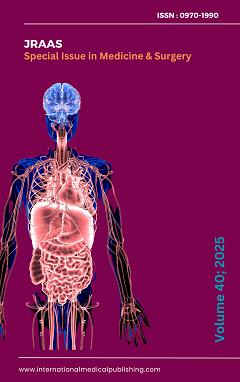The Role of Point of Care Ultrasound (POCUS) in Maternal Emergencies: Advancements, Applications, and Impact on Outcomes
DOI:
https://doi.org/10.71393/k2nm1g60Keywords:
POCUS Maternal emergencies Diagnostic delay Obstetric ultrasound Emergency careAbstract
Introduction: Maternal emergencies are significant contributors to maternal morbidity and mortality, particularly in resource-limited settings where rapid diagnosis and intervention are crucial. Point-of-Care Ultrasound (POCUS) has emerged as a valuable tool for real-time, bedside diagnosis, enabling prompt clinical decision-making in critical obstetric scenarios such as ectopic pregnancy, postpartum hemorrhage, and hypertensive emergencies. Aim and Objective: This study aimed to evaluate the role of POCUS in the timely diagnosis and improved management of maternal emergencies. The primary objective was to assess its impact on diagnosis time and clinical outcomes compared to traditional methods. Materials and Methods: prospective observational study included 80 UPT-positive pregnant women with maternal emergencies at Maharani Laxmi Bai Medical College, Jhansi. Bedside POCUS using a portable BPL machine was performed. Emergencies included hemorrhage, ectopic pregnancy, seizures, shock, and reduced fetal movements. Patients with chronic illnesses or no consent were excluded. Diagnosis time and outcomes were compared. Ethical clearance was obtained. Results: POCUS significantly reduced diagnosis time in all categories of maternal emergencies, with the most notable reduction in ectopic pregnancy (mean time saved: 55 minutes) and preeclampsia/eclampsia (50 minutes). Out of 80 cases, 63 had resolved outcomes, while 17 developed complications. The highest resolution rate was observed in postpartum hemorrhage cases. POCUS facilitated early triage and management, contributing to improved maternal outcomes. Conclusion: POCUS is a valuable tool in maternal emergencies, enabling rapid and accurate diagnosis that improves clinical outcomes. Its integration into standard obstetric care, particularly in low-resource settings, is essential for reducing maternal complications and mortality through timely intervention and effective management.


